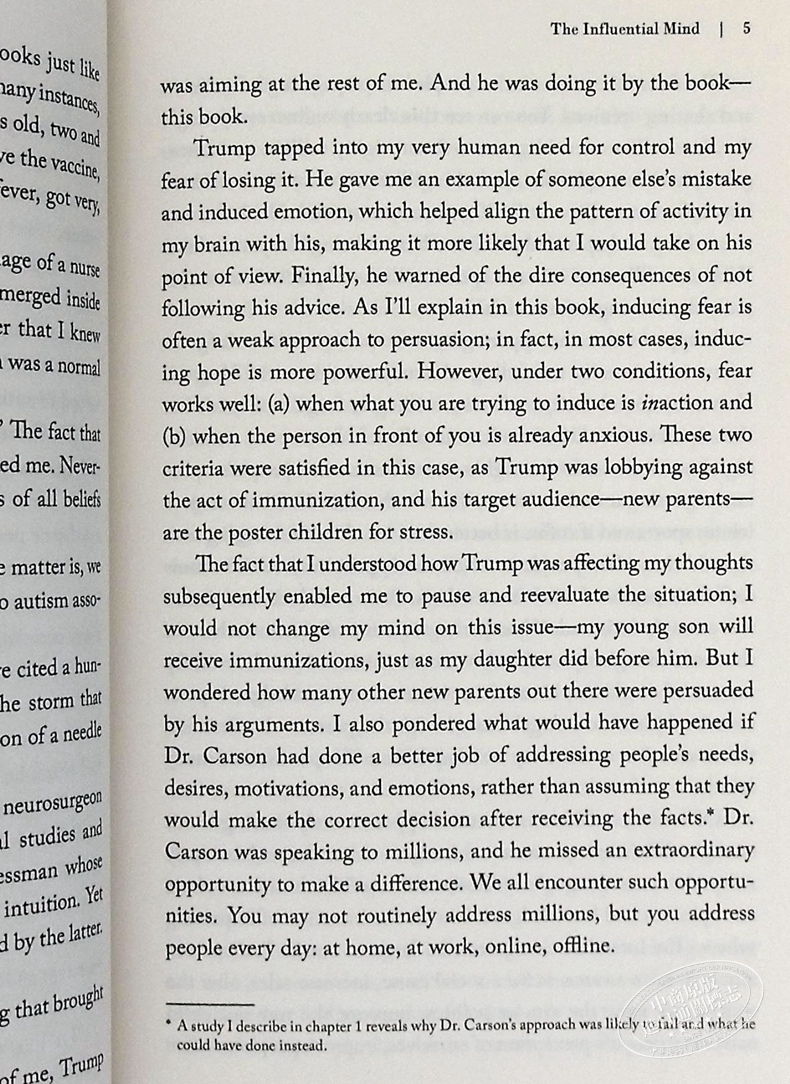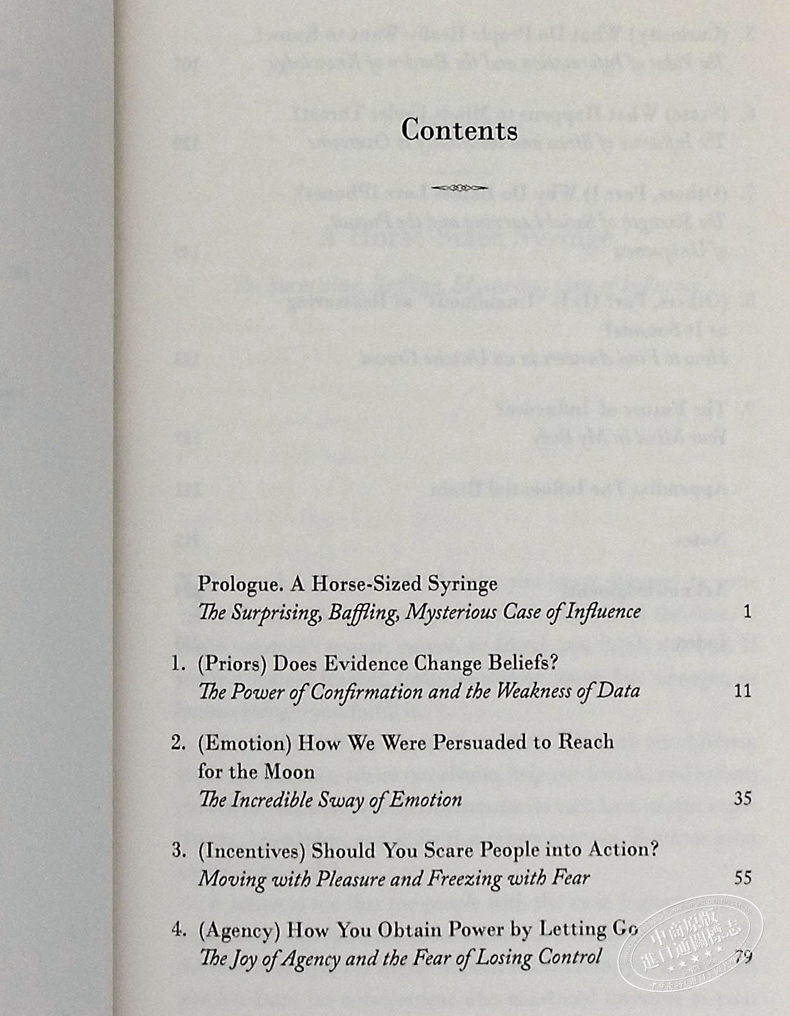The Influential Mind : What the Brain Reveals About Our Power to Change Others
基本信息
Author: Tali Sharot
Format: Paperback | 256 pages
Publisher: Abacus UK
ISBN10 0349140634
ISBN13 9780349140636
Publication date 01 Aug 2018
Dimensions: 134 x 200 x 19mm | 222g
頁面參數僅供參考,具體以實物為準
書籍介紹
被《福布斯》《泰晤士報》《赫芬頓郵報》《Greater Good》雜誌和斯坦福商學院等評選為2017年度年度圖書。
《初代吸血鬼》(original)和《給予與索取》(Give and Take)的作者、《紐約時報》(New York Times)暢銷書作者亞當?格蘭特(Adam Grant)説,這是一本及時而有趣且意義深遠的書,將改變你的生活。
Selected as a best book of 2017 by Forbes, The Times, Huffington Post, Bloomberg, Greater Good Magazine, Stanford Business School and more.
'A timely, intriguing book' Adam Grant, New York Times bestselling author of Originals and Give and Take
'This profound book will change your life. An instant classic' Cass R. Sunstein, bestselling co-author of Nudge
作為人類,我們日常工作的一部分就是影響他人;為什麼有人就能輕鬆説服老闆、客户接受自己的建議?為什麼分手後,你還會忍不住偷偷看前任朋友圈?遠離你想要得到的東西,這樣它就會來到你身邊?為什麼你天不怕地不怕,卻對密集的圖案有深深的恐懼?你是否也想一探很多事情表象背後深層的玄機?這看似屬於心理學範疇,但其實和我們的生活息息相關,書店裏擺滿了高深莫測的心理學課本,可我只想讀最簡單好玩的心理學,來解決最實際的問題!
在當下社會的日常生活中,我們每個人都時刻在被別人影響或影響他人。為什麼會這樣做?因為我們每個人都有其他人可能不具備的獨特經驗和知識。然而很多心理學實驗表明,當試圖改變他人的信念和行為,或者將自己的想法加之於他人的獨立思維之時,我們總會不由自主地陷入錯誤的思維習慣之中。
本書作者塔利·沙羅特曾致力於在實驗室研究人類的行為,力圖弄明白人類究竟如何被影響及影響他人,本書則是作者及其團隊關於思維、影響力與大腦神認知等研究主題智慧的結晶。書中每一章會集中討論七大關鍵要素中的一項——先驗、情感、動機、自主性、好奇心、心態以及他人,並輔以大量輕鬆有趣且具有説服力的實驗或實例加以佐證。
Part of our daily job as humans is to influence others; we teach our children, guide our patients, advise our clients, help our friends and inform our online followers. We do this because we each have unique experiences and knowledge that others may not. But how good are we at this role? It turns out we systematically fall back on suboptimal habits when trying to change other's beliefs and behaviors. Many of these instincts-from trying to scare people into action, to insisting the other is wrong or attempting to exert control-are ineffective, because they are incompatible with how the mind operates.
作者簡介
塔利·沙羅特是一名神經學家。她是《樂觀偏見》一書的作者,倫敦大學學院情感大腦實驗室主任,維康基金會研究員。Tali關於樂觀、情感記憶和認知失調的神經科學論文發表在《自然》《科學》《自然神經科學》和《心理科學》等前沿的科學期刊上。她還為《紐約時報》《觀察家》和《時代》雜誌撰稿。
Tali Sharot is a neuroscientist. She is the author of The Optimism Bias, the director of the Affective Brain Lab at University College London and a Wellcome Trust Fellow. Tali's papers on the neuroscience of optimism, emotional memories and cognitive dissonance have been published in top scientific journals including Nature, Science, Nature Neuroscience and Psychological Science. She has also written for the New York Times, Observer and Time Magazine.



評論曬單